Top 10 Most Searched Vitamin D Supplements: Complete Guide for Bone Health and Immunity
The Importance of Vitamin D for Your Body
Do you know how to choose the best vitamin D supplements? Did you know that approximately 1 billion people worldwide suffer from vitamin D deficiency? This alarming statistic reflects a public health issue that affects people of all ages and backgrounds, even in sunny countries. Vitamin D, often called the “sunshine vitamin,” plays a crucial role in various bodily processes, from bone health to strengthening the immune system.
According to recent studies analyzed by Healthline and BBC Good Food, vitamin D deficiency has been linked to numerous health issues, including increased risk of respiratory infections, autoimmune diseases, and even certain types of cancer. As reported by Forbes Health, this has led to a surge in the popularity of vitamin D supplements, with searches increasing by over 40% in the past two years alone.
Why is vitamin D essential?
Vitamin D isn’t just another nutrient in our diet – it’s a fundamental component for the proper functioning of our body. Unlike other vitamins, vitamin D acts as a hormone, influencing hundreds of biological processes. When our bodies receive direct sunlight, our skin naturally produces this vitamin. However, factors such as geographic location, modern lifestyle (spending more time indoors), and sunscreen use can limit our natural production capacity. So, taking vitamin D supplements can help you!
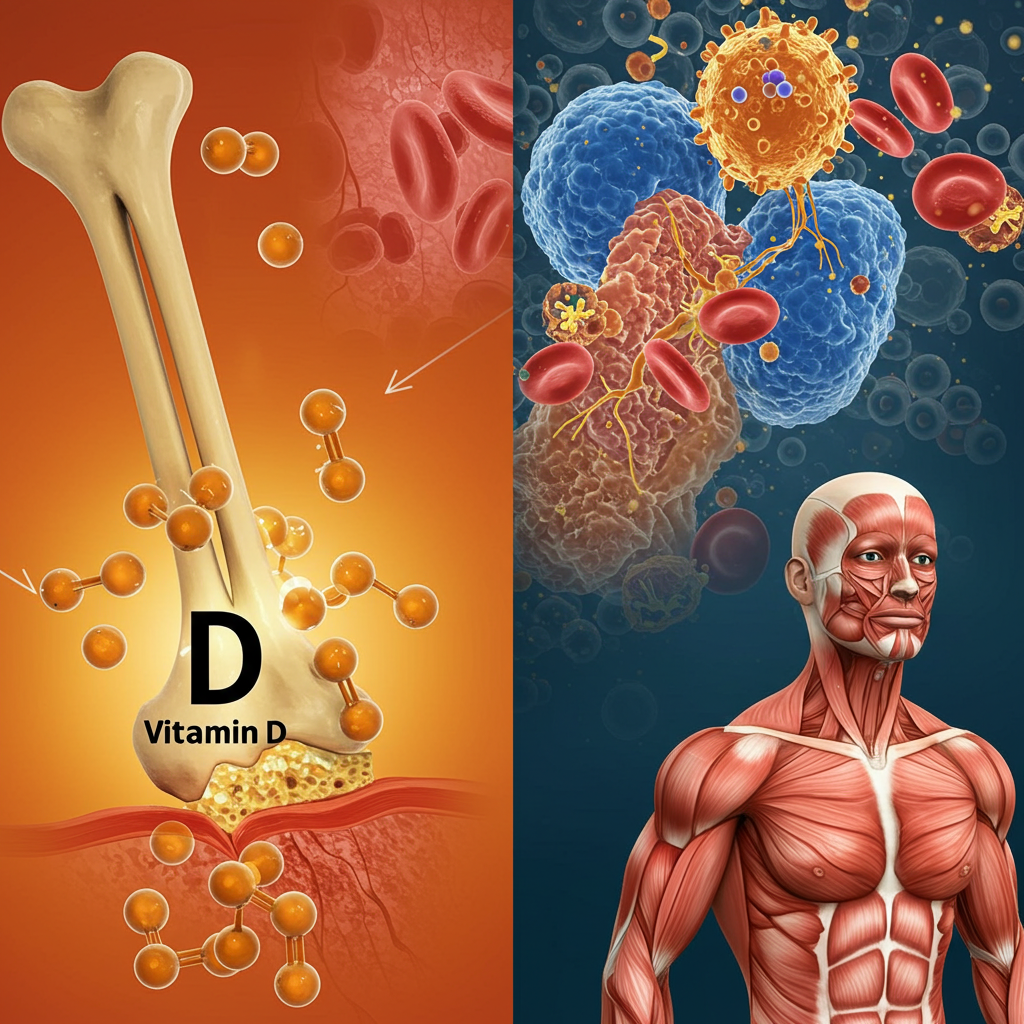
The benefits of vitamin D are extensive and significant:
- Bone strengthening: Facilitates the absorption of calcium and phosphorus, essential minerals for healthy bones and teeth
- Immune support: Helps regulate the immune system, protecting against respiratory infections and other diseases
- Muscle health: Contributes to muscle strength and may reduce the risk of falls in the elderly
- Mood balance: Studies suggest that adequate levels are associated with reduced symptoms of depression
- Cardiovascular health: May help maintain healthy blood pressure and reduce inflammation
As noted by U.S. News Health, maintaining optimal vitamin D levels is particularly important for those with limited sun exposure, darker skin tones, or who live in northern latitudes.
You can read more content
Signs of vitamin D deficiency
How do you know if you need vitamin D supplements? While a definitive diagnosis requires a blood test, there are signs that may indicate low levels:

- Constant and unexplained fatigue
- Frequent muscle and bone pain
- Increased susceptibility to infections and diseases
- Slow wound healing
- Hair loss
- Mood changes and depressive symptoms
According to Everyday Health, vitamin D deficiency is particularly common during winter months in northern climates, among people with darker skin, and those who regularly use sunscreen or stay indoors.
If you identify with several of these symptoms, it’s worth consulting a healthcare professional to assess your vitamin D levels. Remember that proper supplementation can make a significant difference to your overall health.
You can read more, in this researche about vitamin d and immunity. Take a look here.
How We Chose the Best Vitamin D Supplements
Before diving into our list of the 10 most searched and recommended vitamin D supplements, it’s important to understand how we evaluated these products. After all, with so many options available on the market, how do you identify the best ones?
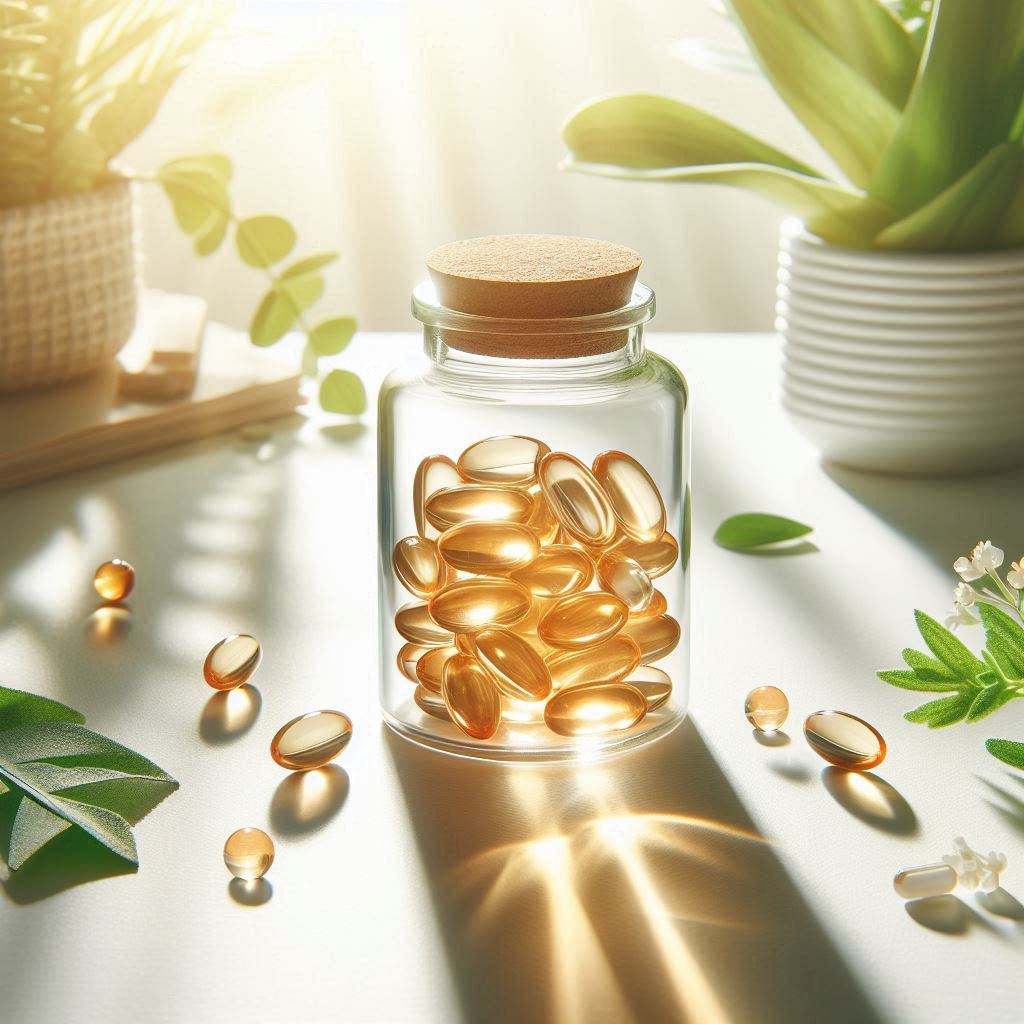
Evaluation criteria and methodology
Our analysis was based on multiple factors to ensure you have access to the most comprehensive and reliable information about vitamin D supplements:
- Popularity and search volume: We analyzed search trends to identify which vitamin D supplements are most sought after by consumers globally. According to WellSpa 360, vitamin D ranked among the top 5 most searched supplements in recent years.
- Expert recommendations: We consulted opinions from pharmacists, nutritionists, and doctors about the most reliable brands. As noted by U.S. News Health, their rankings are based on input from a panel of pharmacists who evaluate each product for quality and reliability.
- Quality certifications: We prioritized products that have undergone third-party testing and have recognized certifications. Forbes Health highlights that supplements verified by organizations like USP (United States Pharmacopeia) or NSF International offer additional assurance of quality.
- Bioavailability: We evaluated how each formula facilitates the absorption of vitamin D by the body. BBC Good Food points out that vitamin D3 (cholecalciferol) is generally considered more effective than vitamin D2 (ergocalciferol).
- Cost-benefit ratio: We considered not just the price, but the overall value offered by the product. Healthline emphasizes that higher price doesn’t always correlate with better quality.
- Consumer feedback: We analyzed real reviews from people who have used the products. Everyday Health incorporates actual customer experiences in their evaluations.
- Formulation and additional ingredients: We checked if the supplements contain beneficial complementary components, such as vitamin K2. According to multiple sources, this combination may enhance effectiveness for bone health.
With these criteria in mind, let’s explore the 10 vitamin D supplements that stand out in the current market and understand why each of them may be the ideal choice for different needs.
The 10 Most Searched and Recommended Vitamin D Supplements
Nature Made Vitamin D3: The Most Reliable on the Market
Nature Made Vitamin D3 earned the top spot on our list for compelling reasons. Ranked number 1 by U.S. News pharmacists for quality and reliability, this supplement stands out for its impeccable reputation in the market.
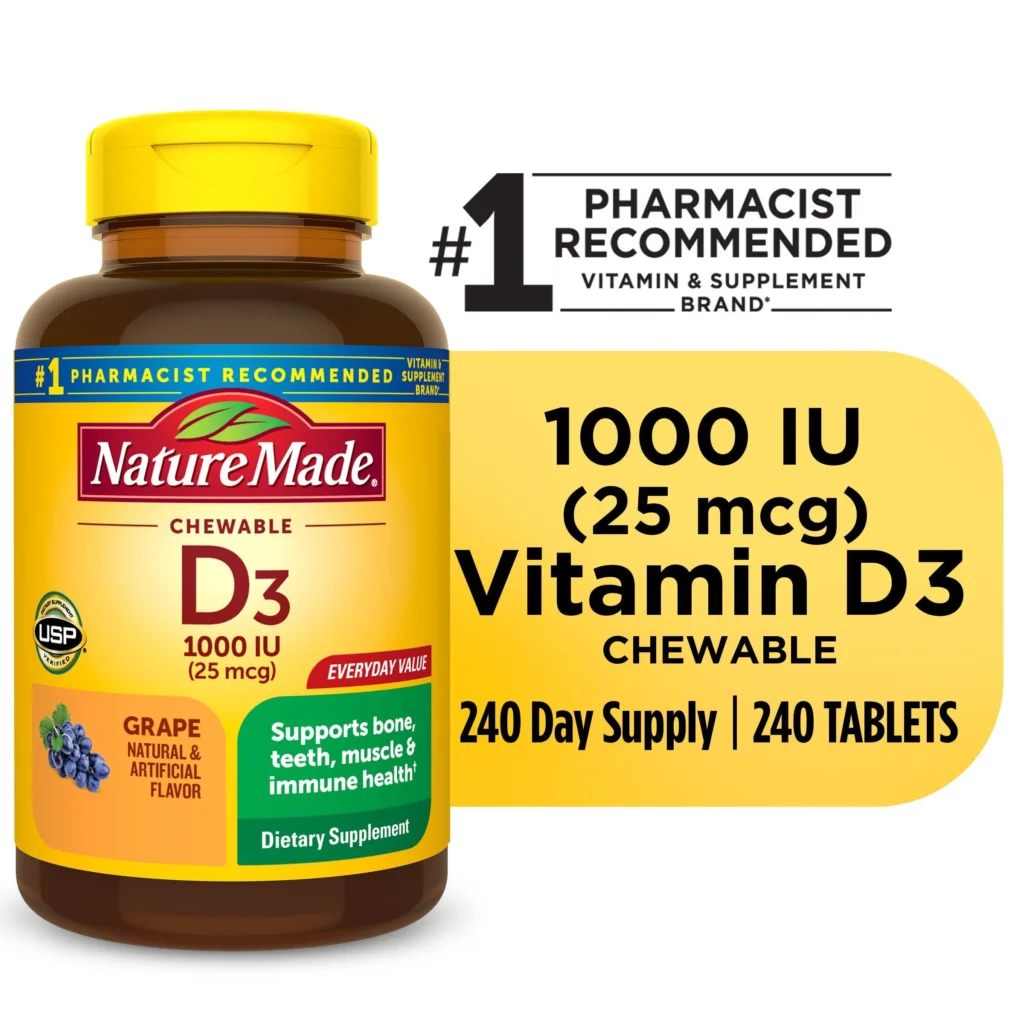
What makes this product special is its dosage versatility, offering options from 2000 to 5000 IU (International Units), allowing you to choose the concentration most suitable for your specific needs. This flexibility is particularly important since vitamin D requirements vary according to age, weight, and health conditions.
According to Forbes Health, Nature Made’s vitamin D3 supplements have been USP-verified, which means they’ve undergone rigorous testing for purity and potency. Healthline notes that the brand has invested heavily in third-party certifications, ensuring that what’s on the label truly corresponds to the content of the capsule. This transparency has earned the trust of both healthcare professionals and average consumers. Additionally, its wide availability in pharmacies and supermarkets worldwide makes this supplement accessible to virtually anyone.
The oil-based formulation contributes to better absorption, since vitamin D is fat-soluble (absorbed with fats). For those seeking an established brand with decades of market presence and strict quality controls, Nature Made represents the safest choice as one of the best vitamin D supplements.
Nordic Naturals Vitamin D3: Transparency and Premium Quality
Nordic Naturals secured the second place on our list thanks to its exceptional transparency and commitment to high-quality ingredients. This brand is frequently praised by health professionals and is regularly recommended in medical and nutritional practices.
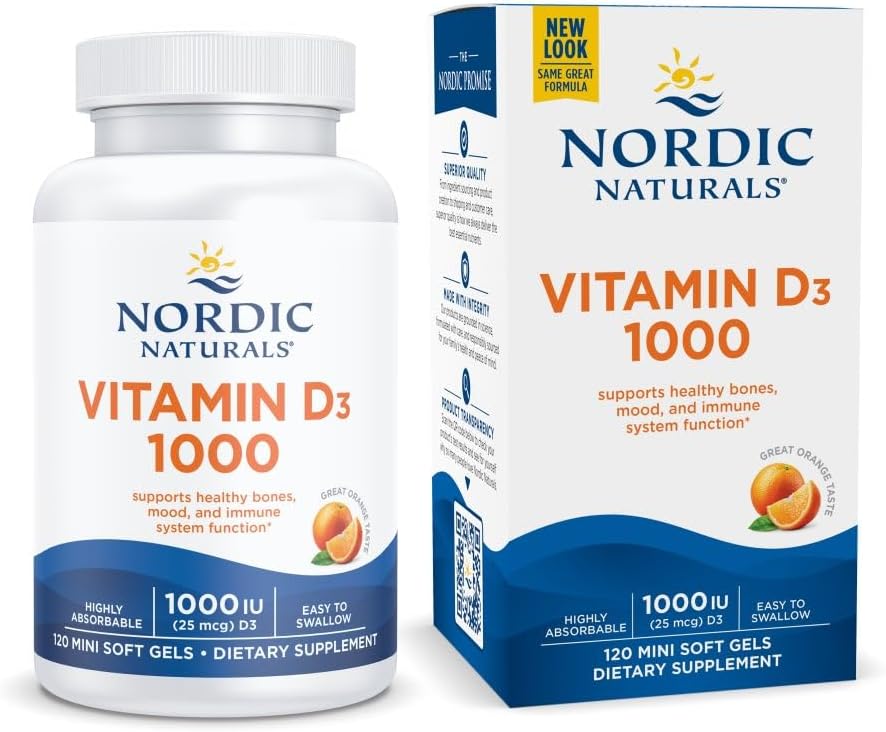
With 1000 IU per softgel, it offers a moderate dosage ideal for daily maintenance. The differentiator lies in the purity of the ingredients: all non-GMO, tested for heavy metals and toxins, and produced using sustainable practices. As highlighted by Everyday Health, Nordic Naturals is one of the few brands that prioritizes sustainability in their sourcing and manufacturing processes.
Nordic Naturals’ formula uses organic olive oil as a vehicle for vitamin D3, a choice that improves absorption and adds a touch of sustainability. BBC Good Food mentions that the company makes the purity test results of each batch available on their website – a level of transparency rarely seen in the supplement industry.
Although slightly more expensive than some alternatives, Nordic Naturals offers a compelling value proposition for consumers concerned about the origin of their supplements and who value ethical business practices.
NatureWise Vitamin D3: Best Value for Money
If you’re looking for maximum potency without compromising your budget, NatureWise Vitamin D3 stands out as the option with the best cost-benefit ratio vitamin D supplements. Offering softgels with up to 5000 IU at an affordable price, this supplement democratizes access to high-quality vitamin D.
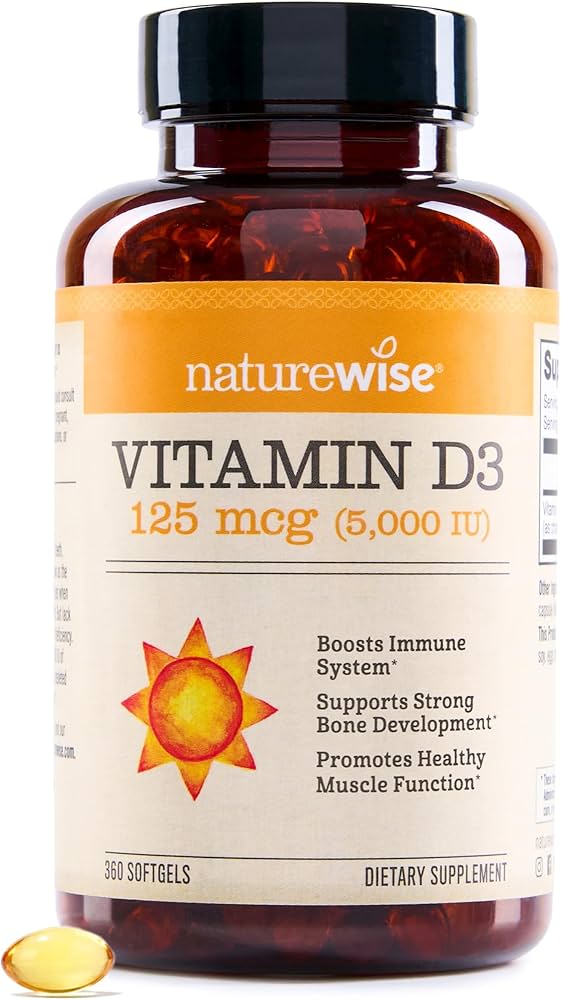
NatureWise doesn’t skimp on certifications: their products are tested by independent laboratories, ensuring purity and potency. Healthline reports that the formula is free from gluten, soy, and genetically modified ingredients, making it suitable for people with specific dietary restrictions.
What’s most impressive is how the brand manages to maintain competitive prices without sacrificing quality. Each capsule contains vitamin D3 (cholecalciferol) – the most bioavailable form of the vitamin – in organic extra virgin olive oil, optimizing absorption. Forbes Health highlights NatureWise as one of the most economical options that doesn’t compromise on quality standards.
The relationship between high vitamin D content and affordable price explains why this supplement is so frequently searched online. For large families or people who need long-term supplementation, NatureWise represents significant savings without sacrificing effective results.
Thorne Vitamin D Liquid: The Ideal Solution for Those Who Avoid Capsules
Thorne Vitamin D Liquid revolutionizes the way many people supplement vitamin D by offering a convenient and effective alternative to traditional capsules and tablets. With 1000 IU per drop, this liquid formula allows for precise dosage adjustments – a significant advantage for those seeking personalization.
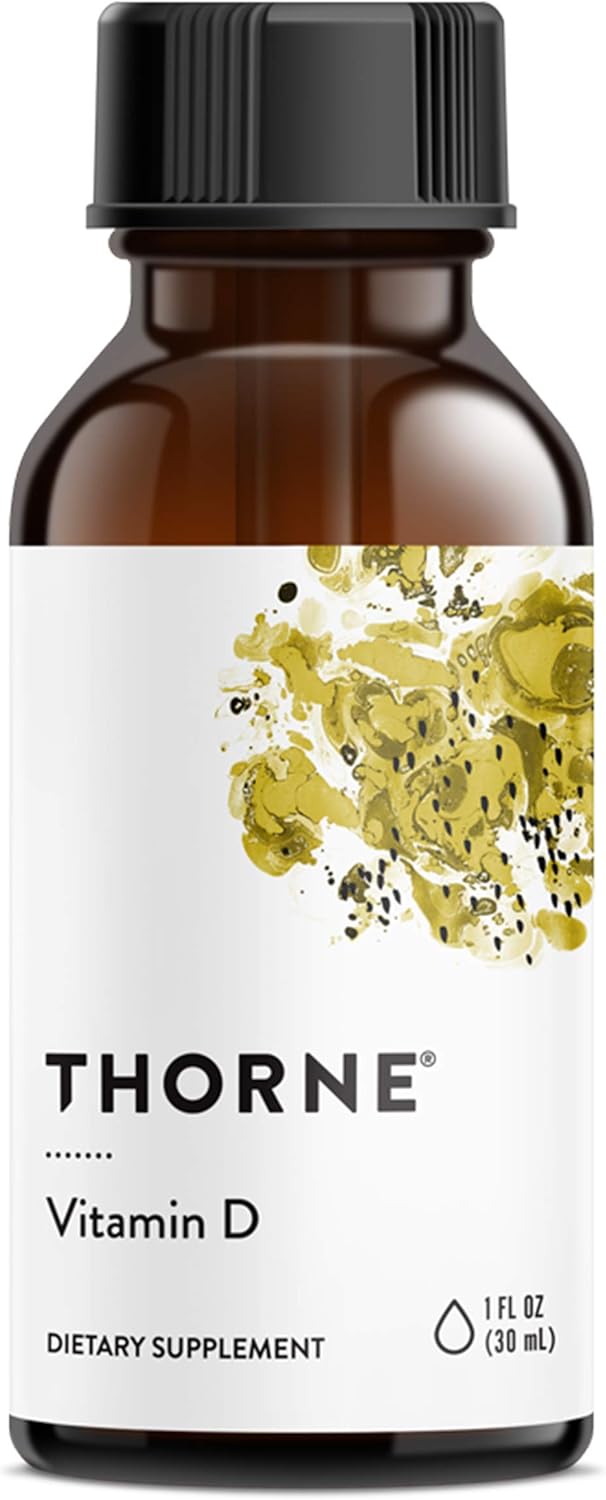
U.S. News Health points out that liquid formulations may be particularly beneficial for individuals with malabsorption issues. The popularity of this supplement is directly linked to its ease of use: simply add a few drops to your favorite beverage. This feature is especially valued by children, the elderly, and anyone who has difficulty swallowing pills.
Thorne Research is known for its rigorous quality standards, exceeding industry requirements. According to Everyday Health, their liquid formula is free from alcohol, artificial preservatives, and common allergens such as gluten, dairy, and soy. The vehicle used – medium-chain triglycerides (MCT) derived from coconut – increases the bioavailability of vitamin D3.
For families with different dosage needs or people who prefer to avoid daily capsules, Thorne Vitamin D Liquid offers an elegant and effective solution, justifying its presence among the most searched vitamin D supplements.
Pure Encapsulations Vitamin D3 + K2: Synergy for Bone Health
Pure Encapsulations elevates the concept of vitamin D supplementation by combining D3 with K2 – a synergistic formula that optimizes benefits for bone health. This intelligent combination represents a more holistic approach to supplementation, recognizing that isolated vitamins rarely work alone in the body.
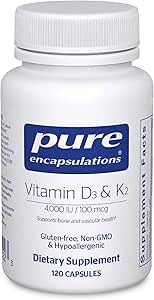
As BBC Good Food explains, vitamin K2 works in conjunction with D3 to ensure that calcium is properly directed to the bones and teeth, rather than accumulating in arteries and soft tissues. This synergy is particularly important for people with concerns related to bone density or cardiovascular health.
As expected from a premium brand, Pure Encapsulations maintains exceptionally high standards: all ingredients are hypoallergenic, tested for purity, and free from unnecessary additives. Healthline notes that the formula is suitable for vegetarians and contains no gluten, making it accessible to people with various dietary restrictions.
Forbes Health points out that this D3+K2 combination is increasingly recommended by healthcare providers who take a more comprehensive approach to nutritional supplementation. This scientific and sophisticated approach to supplementation explains why so many health professionals recommend this specific product for patients concerned with bone health and proper calcium absorption.
VitamoreD D3: Innovation in Advanced Absorption
VitamoreD D3 represents the cutting edge of innovation in vitamin D supplements, using a pre-activated form of vitamin D3 called calcifediol. This advanced formulation bypasses several metabolic steps normally required, allowing more efficient absorption by the body.
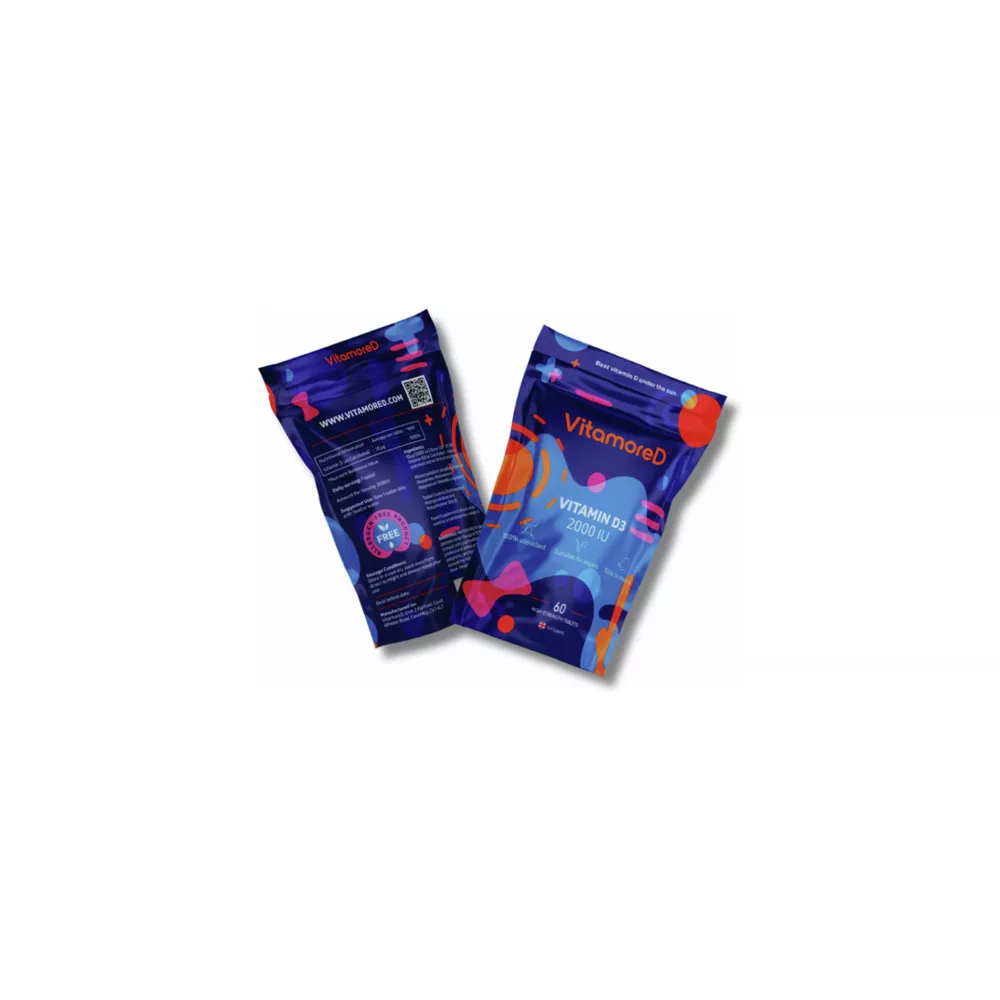
According to research cited by Everyday Health, for people with digestive problems or hepatic or renal conditions that may compromise the activation of traditional vitamin D, this formulation can represent a significant change in supplementation efficacy. Studies suggest that calcifediol can raise blood levels of vitamin D more quickly than conventional formulations.
Another important differentiator is its suitability for vegans – a group often neglected in the vitamin D supplement market, since many formulas use lanolin (derived from sheep’s wool) as a source of D3. VitamoreD uses plant sources, making it accessible to more people.
This combination of advanced technology and inclusivity explains why health enthusiasts and people with specific absorption needs frequently search for this innovative product.
Zooki Vitamin D3 + K2: Cutting-Edge Liposomal Technology
Zooki Vitamin D3 + K2 stands out for using cutting-edge technology in the supplement industry: liposomal encapsulation. This innovation surrounds the vitamins in small fat pockets (liposomes) that protect the nutrients during digestion and facilitate their passage into the bloodstream.
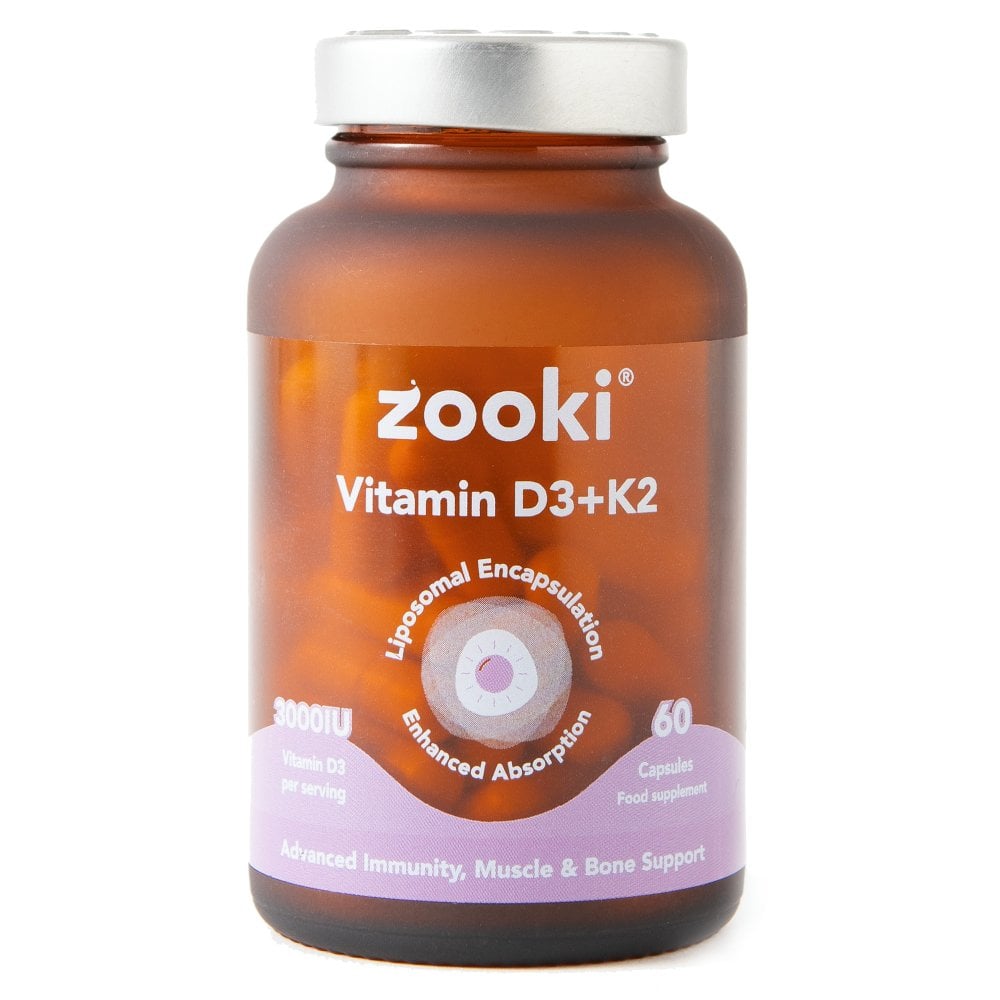
Extremely popular in the UK and Europe, Zooki has gained notoriety on social media for its rapid action claims – many users report feeling the benefits more quickly compared to conventional vitamin D supplements. BBC Good Food reports that liposomal technology can increase bioavailability by up to 20 times, according to some studies.
The strategic combination of D3 with K2 in the MK-7 form (the most bioactive form of K2) maximizes benefits for bone and cardiovascular health. The pleasant taste and liquid consistency make daily supplementation more of a pleasurable experience than an obligation.
Although it’s one of the most premium vitamin D supplements on this list, Zooki attracts consumers who prioritize innovation and efficacy above price, especially those with absorption problems or who haven’t observed satisfactory results with conventional supplements.
BetterYou D3000 + K2 Oral Spray: Convenience and Rapid Absorption
BetterYou D3000 + K2 Oral Spray has revolutionized the way many people supplement vitamin D by offering a practical solution that completely bypasses the digestive system. With a simple spray on the inside of the cheek, vitamins D3 (3000 IU) and K2 are absorbed directly through the oral mucosa.
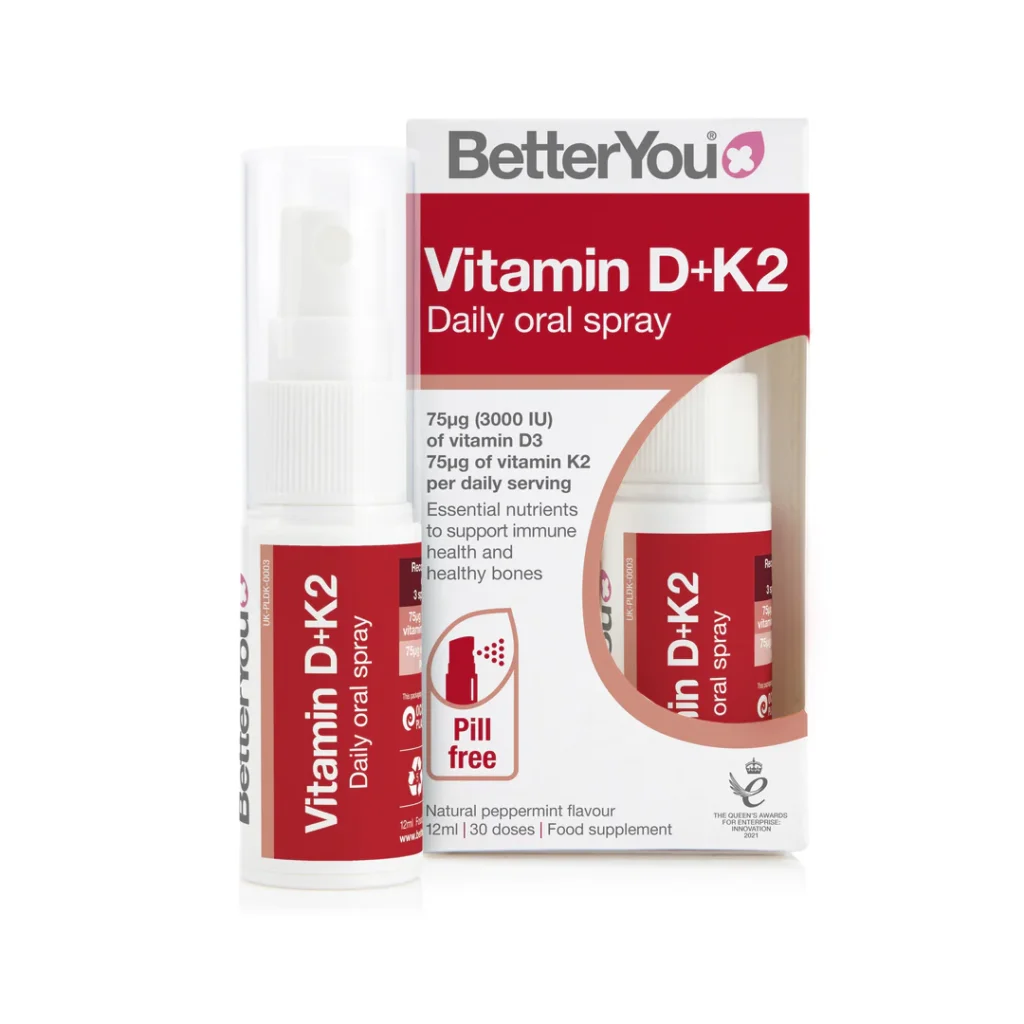
This innovative method is particularly valuable for people with intestinal absorption problems, children who resist taking tablets, or elderly individuals with swallowing difficulties. Forbes Health highlights that the refreshing mint flavor makes the experience pleasant, increasing adherence to the supplementation regimen.
Sublingual (under the tongue) and buccal (through the cheek mucosa) absorption allows nutrients to enter directly into the bloodstream, bypassing initial hepatic processing. For people with compromised metabolism, this can be the difference between effective or ineffective supplementation.
Besides the convenience of the spray format, BetterYou uses ingredients of vegetable and sustainable origin, aligning with the ethical concerns of many modern consumers. According to BBC Good Food, its popularity is especially high among parents of young children and caregivers of the elderly.
Vitabright Vitamin D3: High Potency for Long-Term Use
Vitabright Vitamin D3 stands out as a high-potency solution for those seeking long-term and effective supplementation. With an impressive 2000% of the Reference Value Need (RVN) per capsule, this supplement is particularly popular among people with severe vitamin D deficiencies or who live in regions with limited sun exposure.
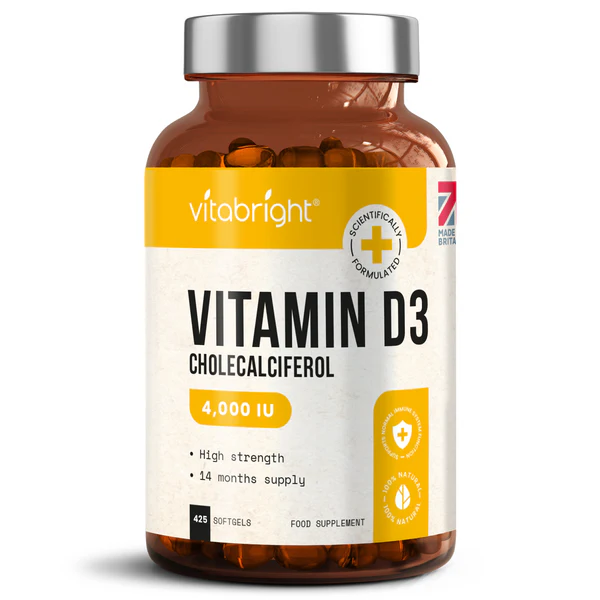
An important differentiator is in its formulation: the softgels contain vitamin D3 dissolved in sunflower oil, strategically chosen to optimize the absorption of this fat-soluble vitamin. This combination ensures that each dose is efficiently utilized by the body.
What really makes Vitabright stand out in the market is its excellent value for prolonged use. Healthline notes that the company has managed to develop a high-quality, high-potency product at an exceptionally competitive price per dose. For those who need to maintain supplementation for long periods, this economic factor is fundamental.
Additionally, each batch undergoes rigorous testing, and the product is manufactured in GMP (Good Manufacturing Practices) certified facilities, ensuring consistency and safety. The packaging contains a supply for several months, reducing the need for frequent purchases.
JS Health Vegan Vitamin D3: The Solution for Vegans
JS Health Vegan Vitamin D3 solves a significant challenge for people following vegan diets: finding a reliable source of vitamin D3 that isn’t derived from animal products. Traditionally, vitamin D3 (cholecalciferol) is extracted from lanolin from sheep’s wool, making it unsuitable for vegans.
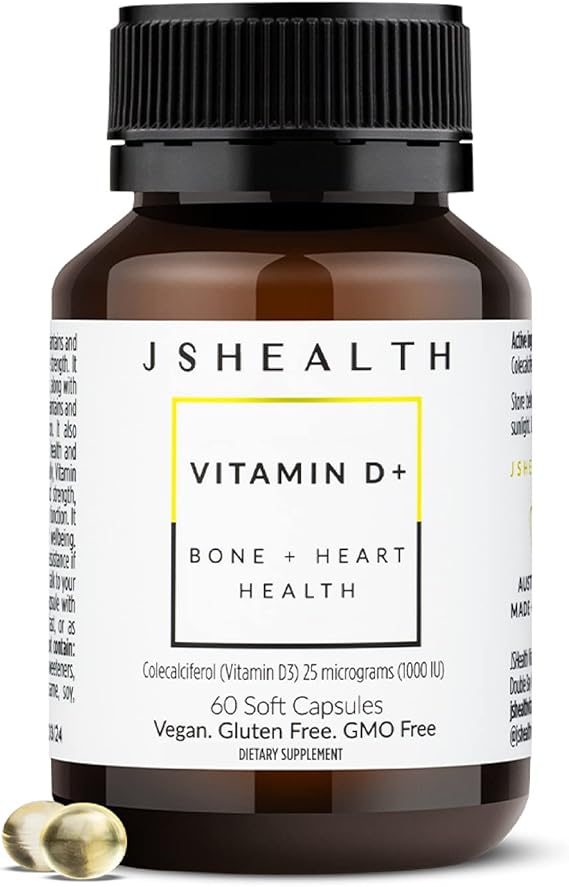
This innovative supplement uses algae-derived vitamin D3, combined with rice bran oil for maximum absorption. BBC Good Food confirms that this exclusively plant-based formulation doesn’t compromise efficacy – studies show that algae-derived D3 is as potent as its conventional counterparts.
The growing popularity of JS Health is directly related to the global increase in veganism and greater awareness of animal welfare. Forbes Health mentions that the brand has also invested in sustainable packaging and ethical production processes, aligning with the values of its target audience.
The supplement offers adequate dosage for daily maintenance and is formulated to optimize absorption even in more sensitive digestive systems. For vegans concerned with bone health, immunity, and adequate vitamin D levels, JS Health represents a reliable solution aligned with their ethical principles.
Current Trends in the Vitamin D Supplement Market
What’s influencing the search for vitamin D supplements
The vitamin D supplement market has experienced impressive growth in recent years, driven by various factors that deserve our attention:
Greater awareness of global deficiency: Recent research has revealed that vitamin D deficiency is much more common than previously thought, affecting populations worldwide, regardless of local climate. According to Healthline, this awareness has led more people to seek supplementation.
Pandemic and immunity: The recent global health crisis intensified interest in vitamin D supplements, after various studies suggested a correlation between adequate levels of this vitamin and better immune response to respiratory infections. U.S. News Health reports that this association catapulted searches for vitamin D supplements to record levels.
Lifestyle changes: The increase in work in indoor environments, more time in front of screens, and regular use of sunscreen have drastically reduced our natural exposure to the sun – the main source of vitamin D. Forbes Health points out that this modern reality makes supplementation necessary for many people.
Aging population: With increasing life expectancy, concerns about bone health and fracture prevention also grow – areas where vitamin D plays a fundamental role. Everyday Health notes that older consumers are increasingly informed about preventive nutrition.
More frequent medical recommendations: Doctors and nutritionists are prescribing vitamin D supplements more frequently, especially after exams that reveal low levels – an increasingly common situation in medical offices. BBC Good Food reports that healthcare providers are now more likely to check vitamin D status as part of routine bloodwork.
New technologies and formulations
The supplement market is constantly evolving, with innovations seeking to improve efficacy and convenience:
Diversified administration forms: Beyond traditional capsules, we see an increase in the popularity of oral sprays, drops, chewable gummies, and even transdermal patches, catering to different preferences and needs. Healthline highlights this trend toward more personalized delivery methods.
Synergistic combinations: The trend of combining vitamin D with other nutrients that enhance its benefits – such as vitamin K2, magnesium, and zinc – reflects a more sophisticated understanding of nutritional interactions. U.S. News Health confirms that these complementary formulations are gaining traction in the market.
Advanced absorption technologies: Liposomal formulations, micronization, and emulsification are some of the technologies employed to improve the bioavailability of vitamin D, especially important for people with digestive problems. Forbes Health identifies these technological advances as a key differentiator between premium and standard supplements.
Focus on sustainability: There’s growing demand for vegan sources of vitamin D3, recyclable packaging, and organic ingredients, reflecting the environmental concerns of modern consumers. BBC Good Food reports that eco-friendly practices are becoming a significant factor in purchasing decisions.
Personalization: Companies are beginning to offer home tests for vitamin D levels, followed by personalized dosage recommendations – a step in the direction of personalized nutrition. Everyday Health identifies this as one of the most promising trends in the supplement industry.
These trends not only shape the current market but also indicate the future direction of the vitamin D supplement industry, with an increasing focus on efficacy, convenience, and sustainability.
How to Choose the Ideal Vitamin D Supplement for You
Finding the perfect supplement among so many options may seem challenging, but some key factors can guide your choice toward a more informed decision aligned with your specific needs.
Factors to consider before buying
Blood test results: The ideal starting point is knowing your current vitamin D levels through a blood test. Healthline recommends this approach because the values obtained will directly influence the necessary dosage – severe deficiencies may require high-potency supplements, while slightly low levels can be corrected with moderate dosages.
Specific health conditions: People with digestive problems, such as Crohn’s disease or irritable bowel syndrome, may benefit from liquid formulations or advanced absorption technologies. Forbes Health notes that individuals with specific bone concerns should consider supplements that combine vitamin D with K2.
Lifestyle and diet: Vegans and vegetarians need to seek non-animal sources of vitamin D3. Similarly, athletes or very active people may require different dosages to support higher metabolic demand. BBC Good Food emphasizes the importance of matching your supplement choice to your dietary preferences and restrictions.
Medications in use: Some medications can interact with vitamin D or affect its absorption. Anticonvulsants, corticosteroids, and certain weight loss medications are examples. U.S. News Health advises consulting your doctor about possible interactions.
Personal preferences: Consider your daily routine and what would work best for you – some people prefer a weekly high-dose capsule, while others adapt better to daily drops in lower concentration. According to Everyday Health, adherence to the supplementation regimen is often determined by how well it fits into your lifestyle.
Recommended dosage
The ideal dosage varies according to age, weight, health conditions, and current levels. As general guidance, Healthline suggests:
- General maintenance for adults: 1000-2000 IU daily
- Correction of mild to moderate deficiency: 2000-5000 IU daily
- Correction of severe deficiency: 5000-10000 IU daily (under medical supervision)
- Elderly: Generally need higher doses (2000-4000 IU) due to reduced skin production
- Pregnant and lactating women: 2000-4000 IU daily (confirm with obstetrician)
- Children: Dosage varies according to age and weight (consult pediatrician)
Important: Dosages above 4000 IU daily should be used only under medical guidance and with periodic monitoring. Forbes Health emphasizes that while vitamin D toxicity is rare, it can occur with excessive supplementation over extended periods.
Administration form
Each supplement form has its pros and cons:
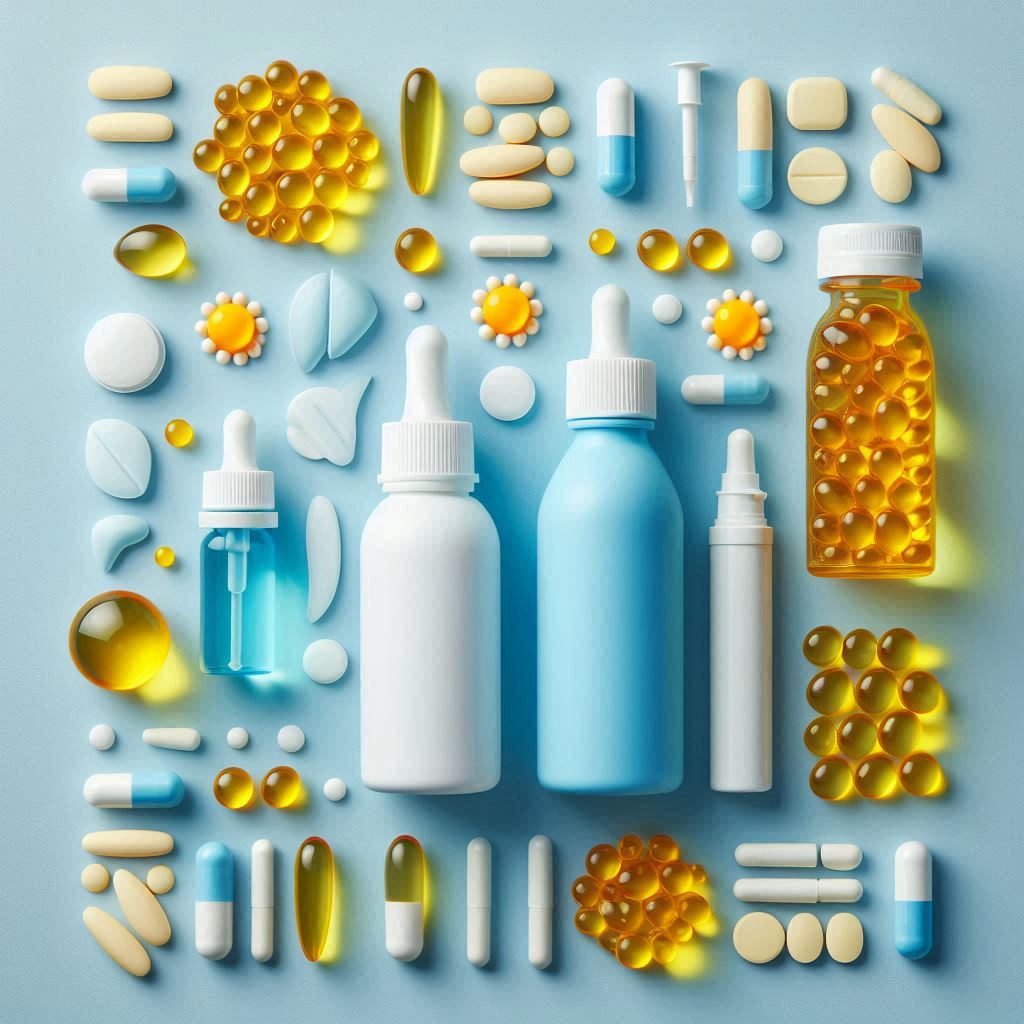
- Capsules/softgels: Convenient, precise, usually contain oil for better absorption. U.S. News Health identifies these as the most popular format due to their convenience.
- Liquid drops: Allow precise dosage adjustment, ideal for those who have difficulty swallowing pills. BBC Good Food points out that these are excellent for mixing into foods or beverages.
- Oral sprays: Rapid absorption, bypass the digestive system, convenient for travel. Everyday Health notes their growing popularity among those with absorption issues.
- Chewable gummies: Pleasant to consume, good for children, but may contain sugars or sweeteners. Healthline cautions that these may contain additional ingredients that some consumers prefer to avoid.
- Tablets: Generally more economical, but may have lower bioavailability as they don’t contain fats. Forbes Health suggests these are best for those on strict budgets.
Certifications and quality assurance
To ensure you’re acquiring a reliable product, BBC Good Food recommends:
- Look for third-party certifications such as USP (United States Pharmacopeia), NSF International, or ConsumerLab
- Verify if the manufacturer follows Good Manufacturing Practices (GMP)
- Prefer brands that conduct independent tests of potency and purity
- Check if the company makes test results available or has a traceable batch number
- Avoid products with long lists of ingredients, artificial colorings, or unnecessary preservatives
Remember that the most expensive supplement isn’t always the best – often, moderately priced products offer excellent quality and compliance with international standards. The important thing is to make an informed choice based on your specific needs and the quality criteria mentioned.
Conclusion: Investing in Your Health with the Right Vitamin D Supplement
After analyzing in detail the 10 most searched and recommended vitamin D supplements on the market, it’s evident that there isn’t a one-size-fits-all solution. The ideal choice depends on individual factors such as your specific health needs, personal preferences, ethical considerations, and available budget.
What we can state with certainty is that vitamin D supplementation represents a valuable investment in your long-term health. In a world where we spend increasingly more time indoors and frequently face challenges to maintain a perfectly balanced diet, supplements can fill important nutritional gaps.
Remember that vitamin D isn’t just another supplement – it’s a fundamental component for various systems in our body. From maintaining bone health to supporting the immune system, the benefits of adequate levels of this vitamin are extensive and well-documented scientifically. As Healthline, Forbes Health, and other reputable sources consistently point out, maintaining optimal vitamin D levels should be a priority for most people, especially those with limited sun exposure or higher risk factors for deficiency.
We strongly recommend that you consider supplementation as part of a holistic approach to your health, ideally with professional guidance. A simple blood test can reveal your current levels and help determine the most appropriate supplementation strategy for your individual needs.
Frequently Asked Questions (FAQs)
1. Can I get enough vitamin D just from food?
It’s challenging to get adequate vitamin D solely from food. While fatty fish, fortified dairy products, and egg yolks contain vitamin D, the amounts are typically insufficient to meet daily requirements. According to Healthline, most people need a combination of moderate sun exposure and vitamin D supplements to maintain optimal levels, especially during winter months or if living in northern latitudes.
2. Is it possible to take too much vitamin D?
Yes, vitamin D toxicity is possible, although rare. It typically occurs from excessive supplementation rather than sun exposure or diet. Forbes Health warns that taking more than 10,000 IU daily for extended periods can lead to hypercalcemia (excessive calcium in the blood), causing symptoms like nausea, weakness, and kidney problems. Always follow recommended dosages and consult a healthcare provider before taking high doses.
3. When is the best time to take vitamin D supplements?
Since vitamin D is fat-soluble, it’s best absorbed when taken with a meal containing some fat. BBC Good Food suggests taking your vitamin D supplements with breakfast or dinner for optimal absorption. However, consistency is more important than timing – choose a time that you’ll remember daily.
4. Do vegans need special vitamin D supplements?
Yes, vegans should look specifically for plant-based vitamin D3 supplements. Traditional vitamin D supplements are derived from lanolin (sheep’s wool), making them unsuitable for vegans. According to Everyday Health, algae-derived vitamin D supplements like JS Health are excellent alternatives that provide the same benefits without animal products.
5. How long does it take to correct vitamin D deficiency with supplements?
The time needed to normalize vitamin D levels depends on the severity of deficiency and the supplementation protocol. U.S. News Health reports that with appropriate dosing, most people see improvements in blood levels within 2-3 months. However, resolving symptoms of deficiency may take longer, sometimes 3-6 months of consistent supplementation. Regular monitoring through blood tests is recommended to ensure you’re reaching optimal levels.

